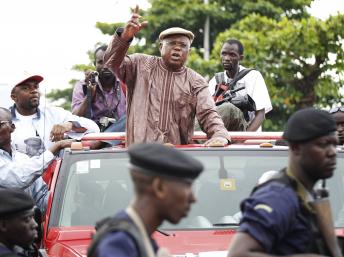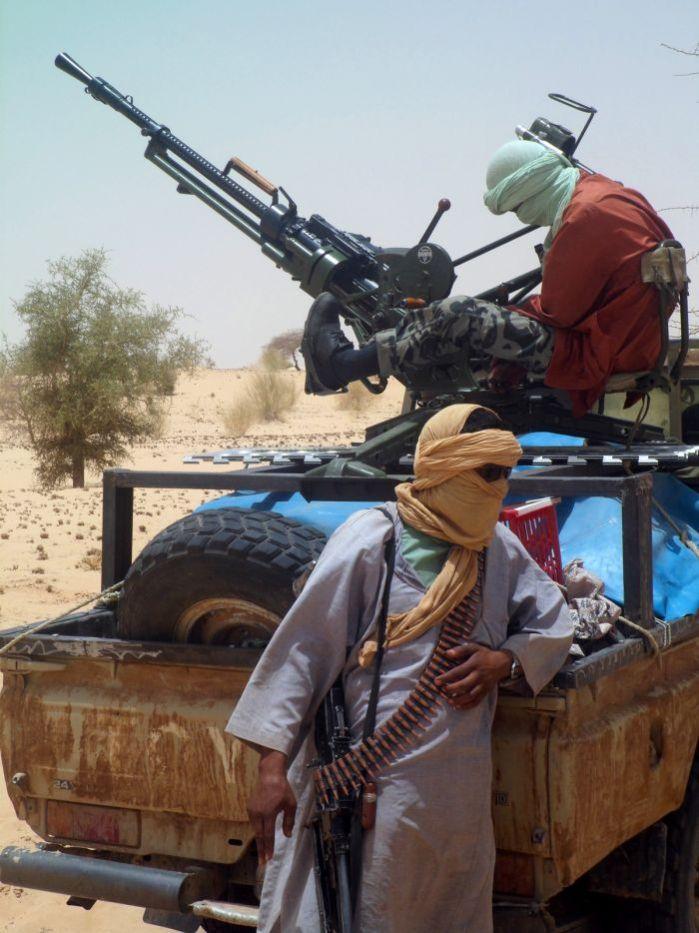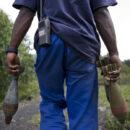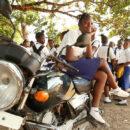African Arguments Editorial: Congo – elections alone will not fix this broken state

The Democratic Republic of Congo is, as this piece is written, conducting its second democratic election since the end of the civil war in 2001. As Marco Jowell reminds us, Congo remains a “˜post-conflict state.’ Meaning, in the language of international development consultants and Foreign Office engagement strategies, although the war might be over, the on-the-ground causes of conflict still remain. These can only be dealt with by delving ever deeper into a country with a vast and complex history of violence, and a political system which for many years has been characterised by inertia.
Elections are in themselves only the most overt expressions of democratic practice. But democracy is, internationally, the only game in town, and Congo’s leaders want to play this game. Even the country’s full name “˜the Democratic Republic of Congo’ seems to brazenly assert this fact, when there is little evidence to suggest that “˜democracy’ is making the lives of the people who live in the DRC any better.
The current election may seem like a healthy competitive process, with the incumbent Joseph Kabila facing a strong challenge from veteran opposition firebrand Etienne Tshisekedi (well-supported in Kinshasa) and the former speaker of the National Assembly, Vital Kamerhe (favoured in the East). In challenging Kabila’s political ascendancy it would have certainly been more effective for opposition figures to have united together behind a single candidate. However, this would have run counter to the orientation of politics in the DRC, in which politicians survive through myriad local alliances, patronage and business deals.
Some Congolese have been saying that if Kabila were to lose, “˜c’est la guerre’ – which means Kabila probably won’t lose, or won’t allow himself to lose. With executive command over what state resources have been assembled through deals with international corporations, and control over the country’s armed forces, Kabila holds all the advantages of the incumbent. However, Tshisekedi (who served in the government of former dictator Mobuto sese Seko) has already claimed that he believes himself to be the rightful President, and will almost certainly bring his supporters to the streets in the event of his likely defeat.
But whoever wins will face the same huge challenges that confront this huge country. Once the spectacle of democratic practice has faded for another few years, ordinary Congolese will be able, once again, to begin building from the ground up the houses, small businesses, roads, clinics and schools that are the real and tangible basis for and products of a democracy.







… [Trackback]…
[…] Informations on that Topic: africanarguments.org/2011/11/28/african-arguments-editorial-congo-–-elections-alone-will-not-fix-this-broken-state/ […]…
Thanks for a thoughtful, informative website. Just read Heart of Darkness and Blood River. Now getting up to date on Congo.
I worked as legal advisor in the DRC (1986-1989).
Disappointed by the Congolese politicians, including Mr`Étienne Tshisekedi and Léon Kengo,I am living abroad.
With great pleasure, I agree with your writing which gives more needed details on Congo´s politics.
I add the following comment. I do believe that all the observations missions missed the point in these elections. Wanting to impose their views known before the elections, they did little for mediation.
Their reports contribute more to the present unconfortable situation.
Most of these observation groups did not want the elections to be organized. I wonder why.
Now, they have found a new jobb in the Congo: Pointing out everything which did not work according to their own standards.
What is important for the Congolese people is the daily life, health infrastructure and a basic infrastructure.
For western countries, it is all about elections!
What is Electoral Legitimacy?
Legitimacy is a term much bruited about in discussions of electoral law and policy. Courts and commentators repeatedly profess their concern with electoral legitimacy. Occasionally questions are voiced about the legitimacy of the entire electoral process such as substantive due process as to the conduct of an election.
Although the concept of electoral legitimacy features prominently in constitutional legal debates, it rarely receives analysis. Those who appeal to electoral legitimacy frequently fail to explain what they mean or the criteria that they employ. Confusion often results — not only among readers and listeners but also, I believe, in the minds of those who write and speak about electoral legitimacy.
I have two ambitions. The first is to clarify what we characteristically mean when we talk about electoral legitimacy. In pursuit of this goal I shall draw a number of distinctions. Perhaps most important, I shall argue that the term electoral legitimacy invites appeal to three distinct kinds of criteria that in turn support these three concepts of electoral legitimacy: legal, sociological, and moral. When electoral legitimacy functions as a legal concept, legitimacy and illegitimacy are gauged by legal norms. As measured by sociological criteria, a claim of electoral authority is legitimate insofar as it is accepted as deserving of respect or obedience. A final set of criteria is moral. Pursuant to a moral concept, electoral legitimacy inheres in the moral justification, if any, for claims of authority asserted in the name of the law as an exemplar of normative conduct.
Distinguishing among legal, sociological, and moral legitimacy often yields an immediate and practical payoff. It comes in increased understanding of electoral debates, enhanced precision of thought, and the potential for clearer expression. When we can identify a particular electoral legitimacy claim as legal, sociological, or moral, its meaning will typically become plain. We will also be better situated to consider the standards for establishing benchmarks in an assessment of an electoral process.
My second aim is to advance substantive understanding of the electoral process. When we examine electoral legitimacy with improved conceptual tools — with a sharpened awareness of what we mean by electoral legitimacy and why we care about it — striking conclusions emerge.
First, the legal legitimacy of an electoral process depends much more on its present sociological acceptance (and thus its sociological legitimacy) than upon the legality of its formal ratification. Other fundamental elements of the electoral process, including practices of interpretation, also owe their legitimacy to current sociological acceptance. By contrast, most ordinary electoral protocols derive their legitimacy from legal/convention norms established by or under a code of conduct.
Second, although an electoral process deserves to be recognized as morally legitimate, the nature and significance of its moral legitimacy are easily misunderstood. The electoral process is not perfect, nor has it ever possessed the unanimous consent of the governed. As a result, the electoral process qualifies as legitimate only under what I shall describe as “minimal†(rather than “idealâ€) theories of moral legitimacy. The electoral process’s moral legitimacy, like that of elections of most nations, arises from the facts that it exists, that it is accepted as law, that it is reasonably (rather than completely) just, and that agreement to a better electoral process would be difficult if not impossible to achieve.
Finally, as should be evident already, the electoral process does not rest on a single rock of electoral legitimacy, as many appear to assume, but on sometimes shifting sands. Realistic discourse about electoral legitimacy must reckon with the snarled interconnections among the electoral legal process, its diverse sociological foundations, and the felt imperatives of practical exigency and moral right.
Monte McMurchy
UNMIL
Monrovia, Liberia
April 14, 2005
This comment follow up my previous comment on the 2011 elections in the Congo.
I am just wondering why Western countries could allowed themselves to be abused by the Rwandese government on its role on the troubles in the Congo.
In an official interview, the President of Rwanda declared how he was approached by Western powers in order to force the new government in the Congo to leave the power.
Is that “democratic values” Western powers are teaching in Africa?
Why the money of the tax payers in Uk and USA can be used by the Rwandese government in order to create wars in the Congo which has already caused the death of more than five millions of persons in the Congo?
What is human right here?
People in Europe and USA take a look at that!
Keep at least this money sent to Rwanda to solve the crisis issues in the Western world instead of sending money to a war lord using a good pretext o
in order to steal congolese resources.
Joseph